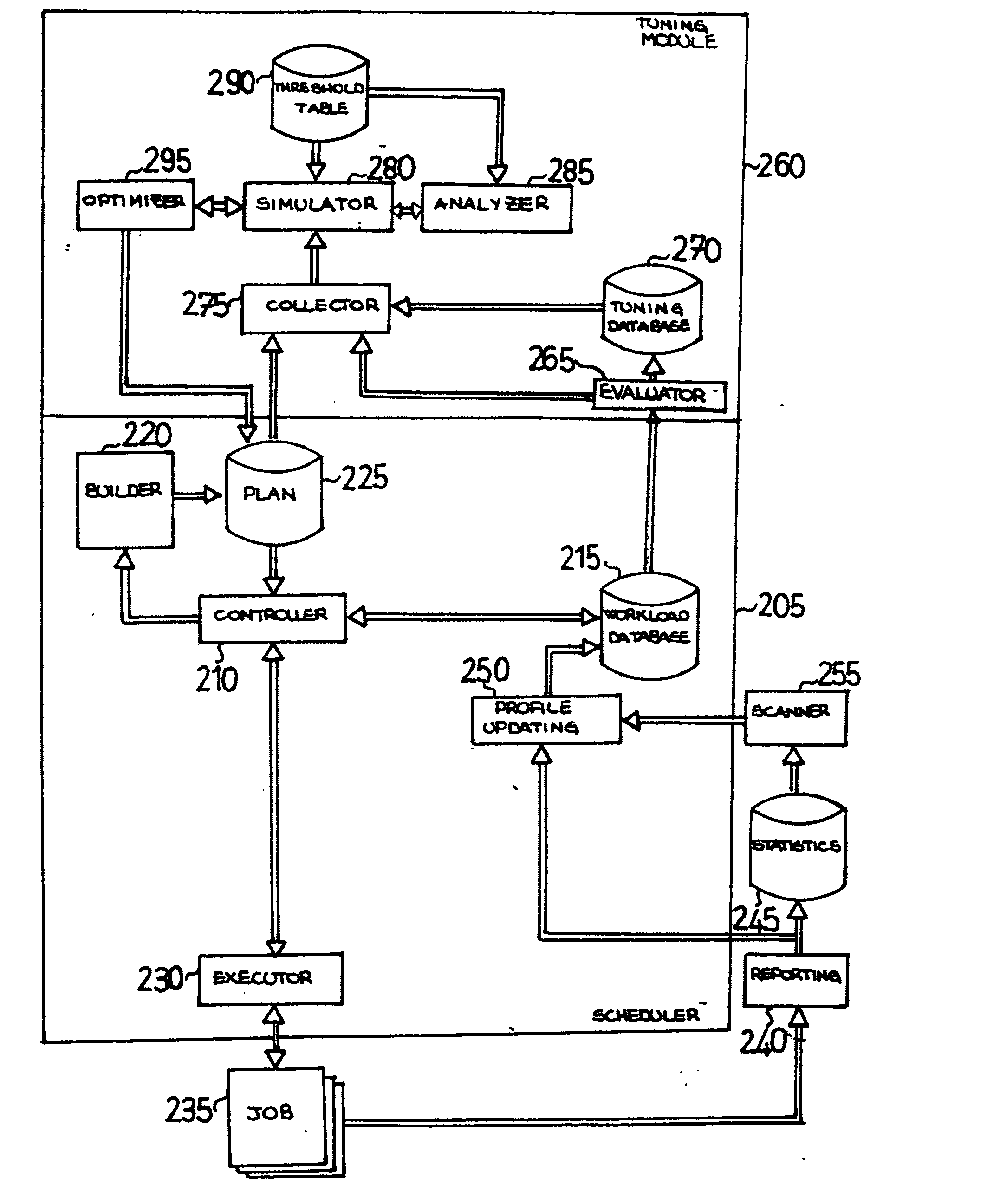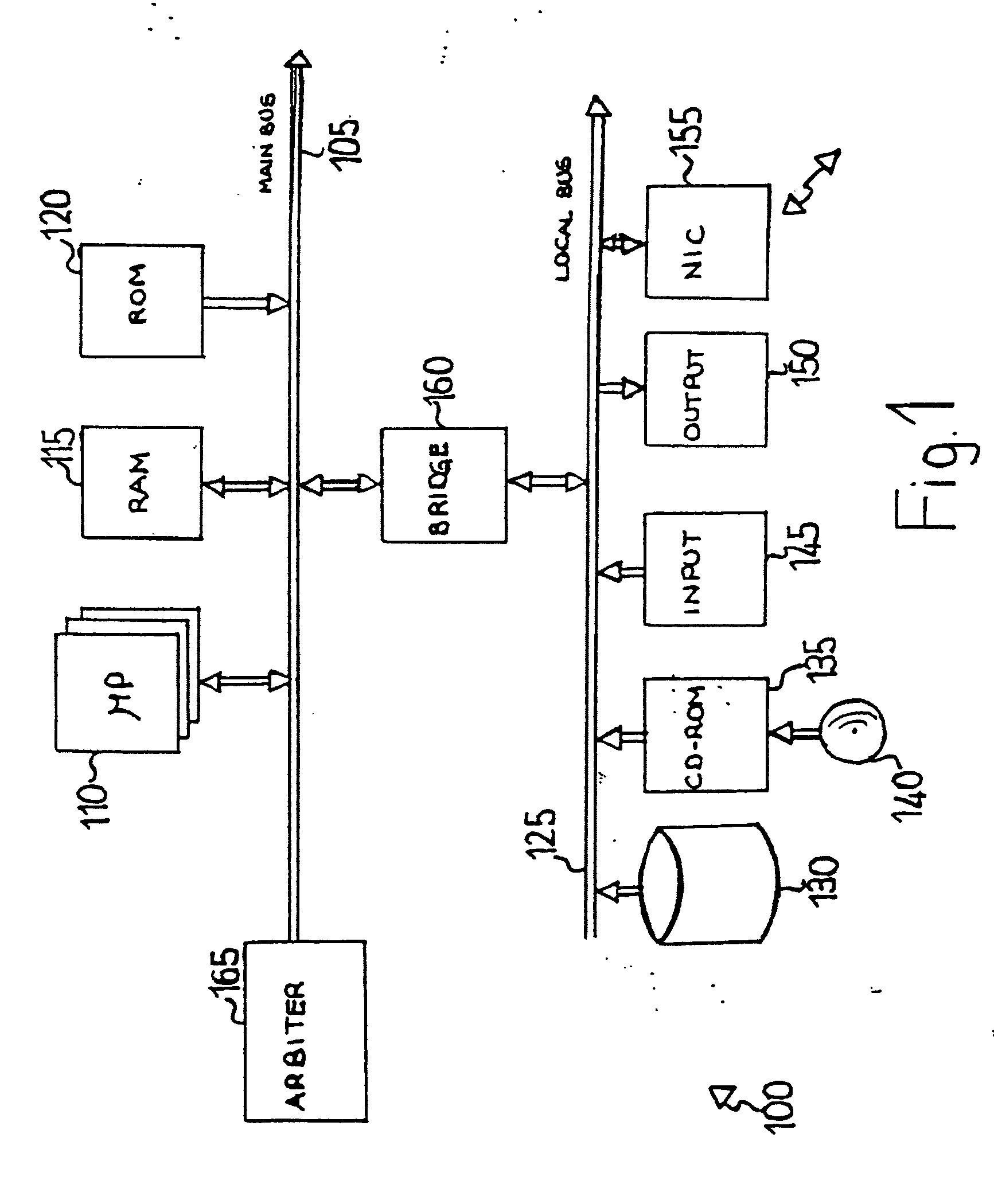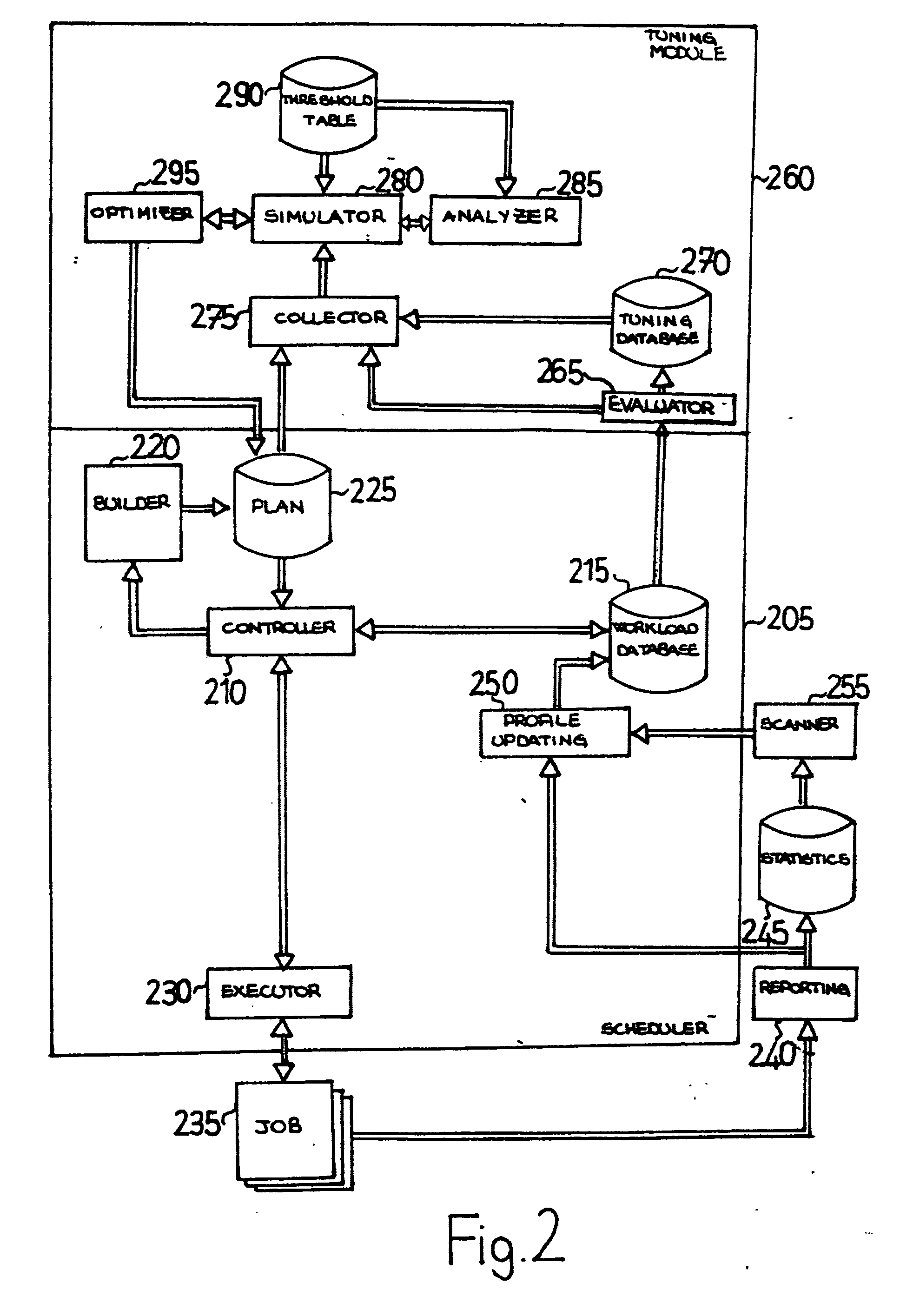Workload scheduler with cumulative weighting indexes
a workload scheduler and weighting index technology, applied in the field of data processing, can solve the problems of poor overall performance of the system, lack of efficient support for tuning the building of the plan, and the duration of the jobs is not indicative of the actual use of resources, so as to optimize the consumption of system resources, improve the overall performance, and optimize the effect of definition tuning
- Summary
- Abstract
- Description
- Claims
- Application Information
AI Technical Summary
Benefits of technology
Problems solved by technology
Method used
Image
Examples
Embodiment Construction
)
[0021] With reference in particular to FIG. 1, a schematic block diagram of a data processing system 100 (for example, a main frame) is shown. The system 100 is formed by several units, which are connected in parallel to a main bus 105. In detail, multiple microprocessors (μP) 110 control operation of the system 100; a RAM 115 (typically consisting of interleaved modules) is directly used as a shared working memory by the microprocessors 110, and a ROM 120 stores basic code for a bootstrap of the system 100. Several peripheral units are clustered around a local bus 125 (by means of respective interfaces). Particularly, a mass memory consists of one or more hard-disks 130 and drivers 135 for reading CD-ROMs 140. Moreover, the computer 100 includes input devices 145 (for example, a keyboard and a mouse), and output devices 150 (for example, a monitor and a printer). A network Interface Card (NIC) 155 is used to connect the system 100 to a network. A bridge unit 160 interfaces the mai...
PUM
 Login to View More
Login to View More Abstract
Description
Claims
Application Information
 Login to View More
Login to View More - R&D
- Intellectual Property
- Life Sciences
- Materials
- Tech Scout
- Unparalleled Data Quality
- Higher Quality Content
- 60% Fewer Hallucinations
Browse by: Latest US Patents, China's latest patents, Technical Efficacy Thesaurus, Application Domain, Technology Topic, Popular Technical Reports.
© 2025 PatSnap. All rights reserved.Legal|Privacy policy|Modern Slavery Act Transparency Statement|Sitemap|About US| Contact US: help@patsnap.com



